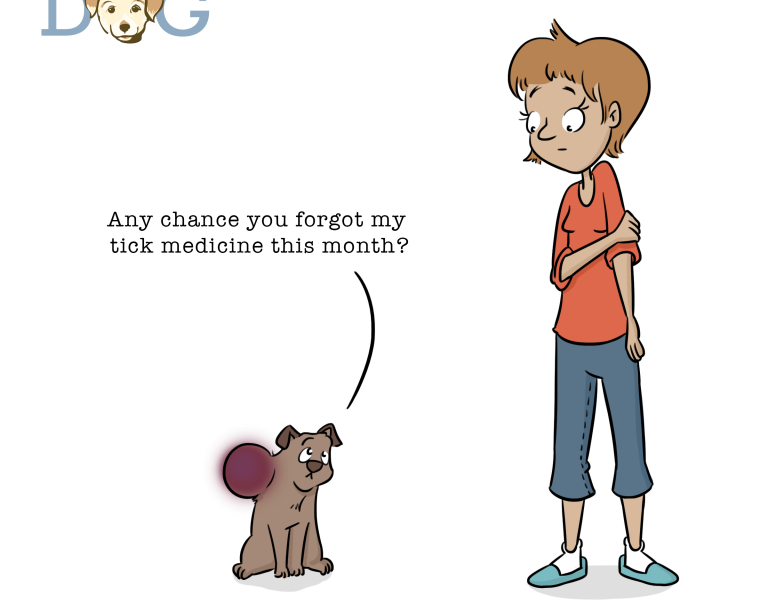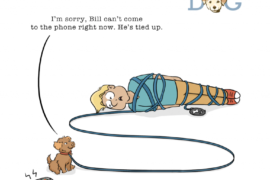

Tick Tock
It’s time. Time to start thinking about those pesky little ticks that like to climb all over our dogs. Usually, this time of year ticks aren’t a problem. Winter typically does that to bugs. However, when we start having 60 degree days in February, nature can get a little confused
I’ve yet to pull my first tick off a puppy this year but I know it’s coming. As the weather warms and the ground dries up, the tiny ticks start appearing. They like to hang out in tall grass, leaf piles and of course, on Bowser’s back.
While I’m generally a fan of all things nature, with ticks, I make an exception. Ticks are nasty little creatures that are likely to find their way onto our pets and into our homes. Once there, they’ll attach to our pets (or family members) and start doing their best Dracula impression.
You’ll most likely find a tick on your pet after it’s been attached for a couple of days. They will often swell up to the size of grape. When they burst/break… well, let’s just say it’s a mess. Aside from the gross factor, ticks can harbor a multitude of diseases. Lyme disease, ehrlichiosis and anaplasmosis are just a few of the tick transmitted diseases you and your pet are in a position to contract if that little tick gets ahold of you.
Fortunately, there are a number of good preventative measures you can take. Consult with your Vet about the types of products you should be using on your own dog. There are many different kinds of all natural sprays that you can apply to your pet. These sprays, however, need to be applied regularly to be effective.
Frontline is a popular tick repellent as well. This is a liquid you apply monthly to the dog’s skin. It absorbs into the dog’s fat cells and prevents the ticks from attaching. We currently use a pill called NextGuard that works great and isn’t as messy.
Brushing your dog after a romp in the outdoors is always a good idea as well. When a tick first hops on a dog, they are usually attached to the end of the hair so a quick brushing will knock them off the dog before they come into the house. Minimizing romps in tall grassy areas helps too (but your dog probably won’t like it). By using a combination of preventative meds and some landscaping maintenance, you will be well on your way to having a tick-free summer.
It’s time to start thinking about ticks, before they start thinking about you.









